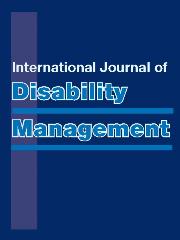No CrossRef data available.
Article contents
Exploring the Meaning of Best Practice: A Discussion on the Way Client-Centred Psychosocial Rehabilitation Services Might Address the Needs of Australian Veterans in the Future
Published online by Cambridge University Press: 23 February 2012
Abstract
This article presents a summary of 10 priorities for the delivery of best practices in psychosocial rehabilitation relevant to the Australian veteran population. The first section interrogates the empirical principles characteristically identified with best practices before presenting an alternative, heuristic framework organised by three reference points and informed by principles of efficacy, external validity, and the meaning of efficacy in the context of parity. The article presents the strategy used in reviewing the literature, before presenting the findings according to 10 key priorities. The 10 priorities are described in the context of the literature informing them and are set out with regard to the centrality of the client-centred service model in the design and delivery of pertinent and effective services into the future.
- Type
- Articles
- Information
- Copyright
- Copyright © Cambridge University Press 2011


